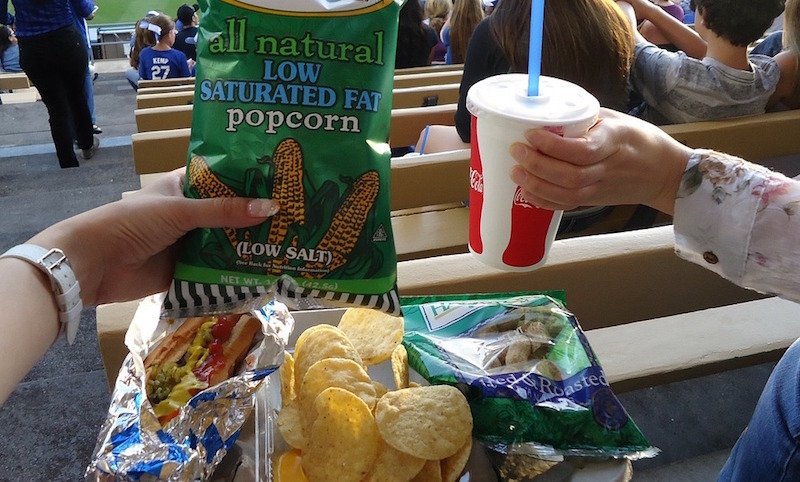 As I wrote about in The Seattle Times recently, I have a little bit of a problem with the idea of “everything in moderation.” One issue, as I spelled out, is that some people are not good at moderating intake of tempting, highly palatable foods and may actually do better from abstaining from these foods when they are trying to improve their nutrition.
As I wrote about in The Seattle Times recently, I have a little bit of a problem with the idea of “everything in moderation.” One issue, as I spelled out, is that some people are not good at moderating intake of tempting, highly palatable foods and may actually do better from abstaining from these foods when they are trying to improve their nutrition.
Recently, I came across some research looking at whether a more diverse diet is associated with excess body fat in the abdominal area and with increased risk of diabetes. In other words, is taking “everything in moderation” to heart a healthy idea. It turns out that individuals in the study who ate a wider variety of foods ate more of both healthy and unhealthy foods. In other words, if taking the idea of “everything in moderation” to heart means that you are eating more broccoli and more cookies, it may be a wash.
“Thus, potential benefits of increased intakes of fruits and vegetables may be outweighed by unfavorable effects of trans-fat, sodium, starch and refined carbohydrates, resulting in no overall benefit to metabolic health.”
Moderation? Who Says?
So who touts the “everything in moderation” message? Some well-meaning dietitians and other healthcare providers, to be sure, but really I think that gospel is mostly being spread by food manufacturers. Saying that “when consumed in moderation, all foods can be part of a healthy, balanced diet” is a convenient, albeit trite, way to deflect from criticism that their food products are unhealthful. Big Soda uses this argument all the time.
Speaking of Big Soda, I’m in the middle of writing an article for on how beverage choice impacts health. In one of the research papers I was reading the other day, “Sweetening of the global diet, particularly beverages: patterns, trends and policy responses,” the following passage nearly took my breath away:
“74% of the foods in the US food supply contain caloric or non-caloric sweeteners. Of all packaged foods and beverages purchased by a nationally representative sample of US households in 2013, 68% (by proportion of calories) contain caloric sweeteners and 2% contain low-calorie sweeteners.”
Does this make you mad? It makes me mad. I mean, I knew the increasingly processed nature of the food supply in this country was getting out of hand, but these numbers sort of blew my mind. Even worse, we’re bringing the rest of the world along for the ride. Sorry, world. I wish you didn’t want to be like us and eat our crappy food. You should stick to your traditional diets!
Saying “No” to Big Food
I personally don’t eat a lot of highly processed food (note to self: write a Seattle Times column about the various layers of processing), sticking as much as possible to whole foods (apples, broccoli, salmon, nuts, quinoa, farro, leafy greens, avocados, and so on ) and minimally processed foods (yogurt, tofu, quality cheese, olive oil, spices, and so on), but the more I read about the havoc that the highly processed foods are wrecking, the madder I get.
I don’t subscribe to conspiracy theories about how Big Food is trying to make us unhealthy (honestly, they are just businesses that want you to buy their products so they can make a profit), but let’s just say that when psychologist Kima Cargill, PhD, a University of Washington professor and author of The Psychology of Overeating, was giving a talk to some of my patients last week (we offer a monthly lecture at Menu For Change), and quipped that she follows what could be called the Spite Diet, refusing to eat certain foods not necessarily because she’s some paragon of healthfulness, but because she refuses to give money to companies that lure us to buy their products with questionable marketing tactics, I did a little fist pump.
I don’t know, I think she’s on to something. Want to join me in following the Spite Diet? Up with real food, down with Big Food!






